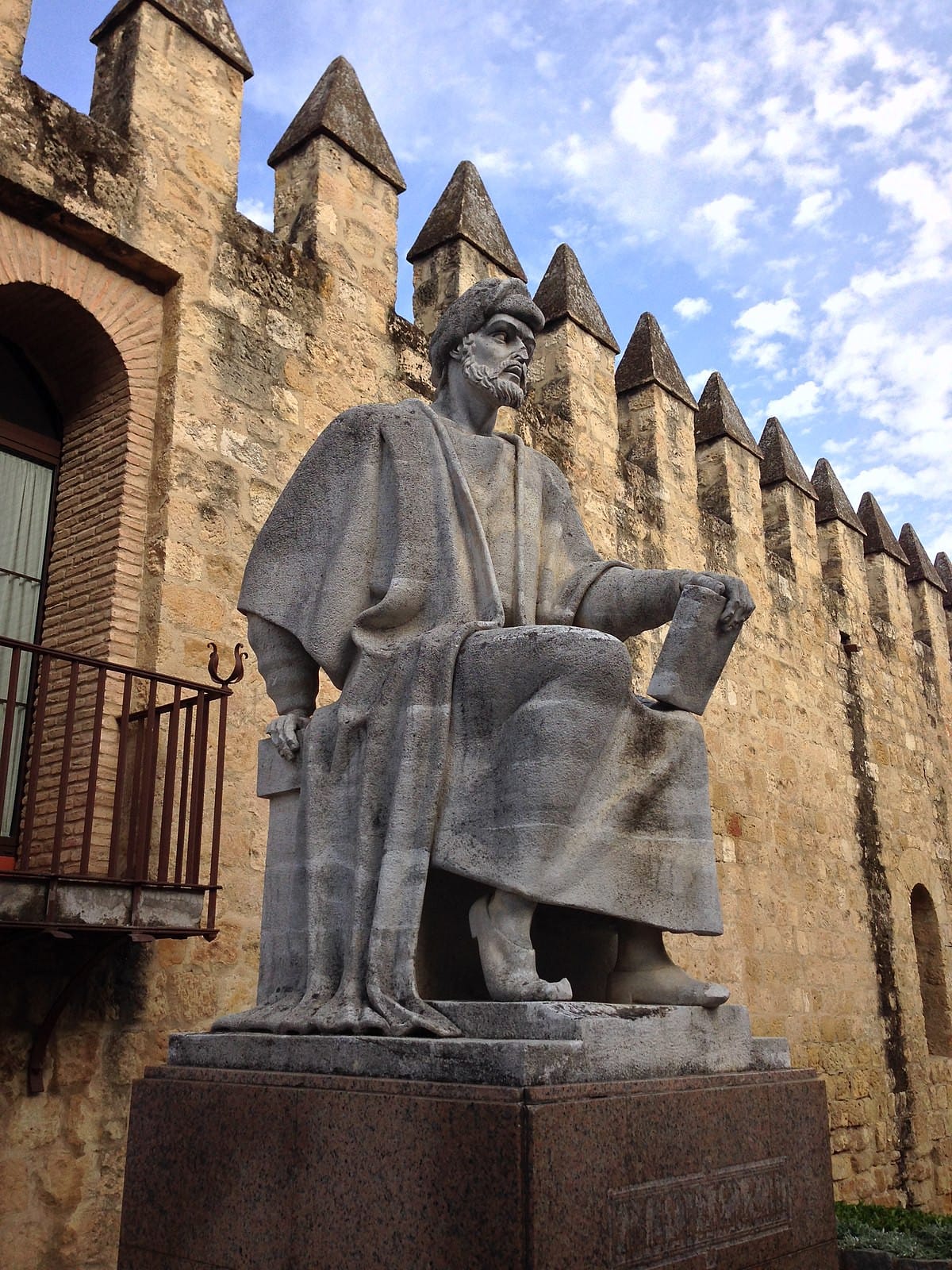
Averroes
Ibn Rushd (Arabic: ابن رشد; full name in Arabic: أبو الوليد محمد ابن احمد ابن رشد, romanized: Abū l-Walīd Muḥammad Ibn ʾAḥmad Ibn Rušd; 14 April 1126 – 11 December 1198), often Latinized as Averroes (English: ), was an Andalusian polymath and jurist who wrote about many subjects, including philosophy, theology, medicine, astronomy, physics, psychology, mathematics, Islamic jurisprudence and law, and linguistics. The author of more than 100 books and treatises, his philosophical works include numerous commentaries on Aristotle, for which he was known in the Western world as The Commentator and Father of Rationalism.
Averroes was a strong proponent of Aristotelianism; he attempted to restore what he considered the original teachings of Aristotle and opposed the Neoplatonist tendencies of earlier Muslim thinkers, such as Al-Farabi and Avicenna. He also defended the pursuit of philosophy against criticism by Ashari theologians such as Al-Ghazali. Averroes argued that philosophy was permissible in Islam and even compulsory among certain elites. He also argued scriptural text should be interpreted allegorically if it appeared to contradict conclusions reached by reason and philosophy. In Islamic jurisprudence, he wrote the Bidāyat al-Mujtahid on the differences between Islamic schools of law and the principles that caused their differences. In medicine, he proposed a new theory of stroke, described the signs and symptoms of Parkinson’s disease for the first time, and might have been the first to identify the retina as the part of the eye responsible for sensing light. His medical book Al-Kulliyat fi al-Tibb, translated into Latin and known as the Colliget, became a textbook in Europe for centuries.
His legacy in the Islamic world was modest for geographical and intellectual reasons. In the West, Averroes was known for his extensive commentaries on Aristotle, many of which were translated into Latin and Hebrew. The translations of his work reawakened western European interest in Aristotle and Greek thinkers, an area of study that had been widely abandoned after the fall of the Western Roman Empire. His thoughts generated controversies in Latin Christendom and triggered a philosophical movement called Averroism based on his writings. His unity of the intellect thesis, proposing that all humans share the same intellect, became one of the best-known and most controversial Averroist doctrines in the West. His works were condemned by the Catholic Church in 1270 and 1277. Although weakened by condemnations and sustained critique from Thomas Aquinas, Latin Averroism continued to attract followers up to the sixteenth century.
More Details
- Other Names :Abul Waleed Muhammad Ibn Rushd,Averojus,Averowesse,Averoé,Averroes,Averrois,Averroè,Averroès,Averroës,Averróes,Averróis,Awerroes,Bnu Rucd,Ibn Rushd,Ibn Rushd Abdulvalid Muhammad,Ibn Ruŝd,Ibn Rušd,Ibn Rušds,Ibn-Rušd,Ibnu Rusyd,Îbnî Ruşd,İbn Ruşd,İbn Rüşd,Αβερρόης,Авероес,Авероэс,Аверроес,Аверроэс,Авэроэс,Ибн Рушд,Ибни Рушд,Әбү Вәлид бине Рөшд,Իբն Ռուշդ,Իպն Ռուշտ,אבן רושד,איבן ראשד,ئیبن ڕوشد,ابن الرشد,ابن رشد,بن روشد,आवेरोस्,इब्न रश्द,ইবনে রুশদ,ਇਬਨ ਰਸ਼ਦ,அவ்ரோசு,ಅವಿರೊಯಿಜ಼್,ഇബ്നു റുഷ്ദ്,อิบนุ รุชด์,იბნ რუშდი,ⵉⴱⵏ ⵔⵓⵛⴷ,イブン・ルシュド,伊本·魯世德,伊本·鲁世德,伊本魯世德,이븐 루시드
- WikiPedia Page
- Born on 10 December